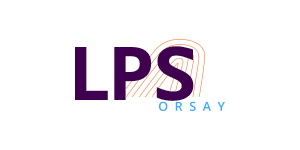Séminaire général : Recent developments for Artificial Intelligence application to Particle Physics – David ROUSSEAU (IJCLAB)
Résumé : Particle Physics (HEP) has a long history of dealing with large and complex data samples, and Artificial Intelligence is playing a growing roles. I’ll first deal with what are the specificities of these samples : large, structured data but no images nor time series, and the output of the analysis is a measurement which should be trusted. Complex simulators have been developped over time to accurately simulate the physics of proton collisions, or the interaction of high energy particles with a detector. A current line of developments is to emulate these simulators with Neural Networks, which promise several orders of magnitude speedup if the accuracy can be maintained. Finally the inference of the fundamental parameters has to be obtained from high dimension data with non-analytic models, which have to be derived from large simulated datasets (Simulation Based Inference). Another line of developments is to maximise the sensitivity of the techniques, when all source of systematic uncertainties are considered.
Biographie : David Rousseau (CNRS/IN2P3) est chercheur dans l’expérience ATLAS sur le Large Hadron Collider du CERN. Après une douzaine d’années passées à concevoir et implémenter les logiciels d’exploitation d’ATLAS, une rencontre avec un spécialiste en Apprentissage Automatique en 2013 (au tout début de la révolution de l’Apprentissage Profond) a décidé la suite de sa carrière : développer l’interface entre la Physique des Hautes Energies et l’Apprentissage Automatique et l’Intelligence Artificielle. Il a co-organisé deux challenges de Data Science sur la plateforme Kaggle, Higgs ML (sur la classification d’événements au LHC) en 2014 et TrackML (sur la reconstruction de la trajectoire de particules) en 2019. Il a coordonné le forum Apprentissage Automatique du CERN. Il s’intéresse particulièrement aux modèles substitutifs et à l’inférence optimale en présence d’incertitudes systématiques.
